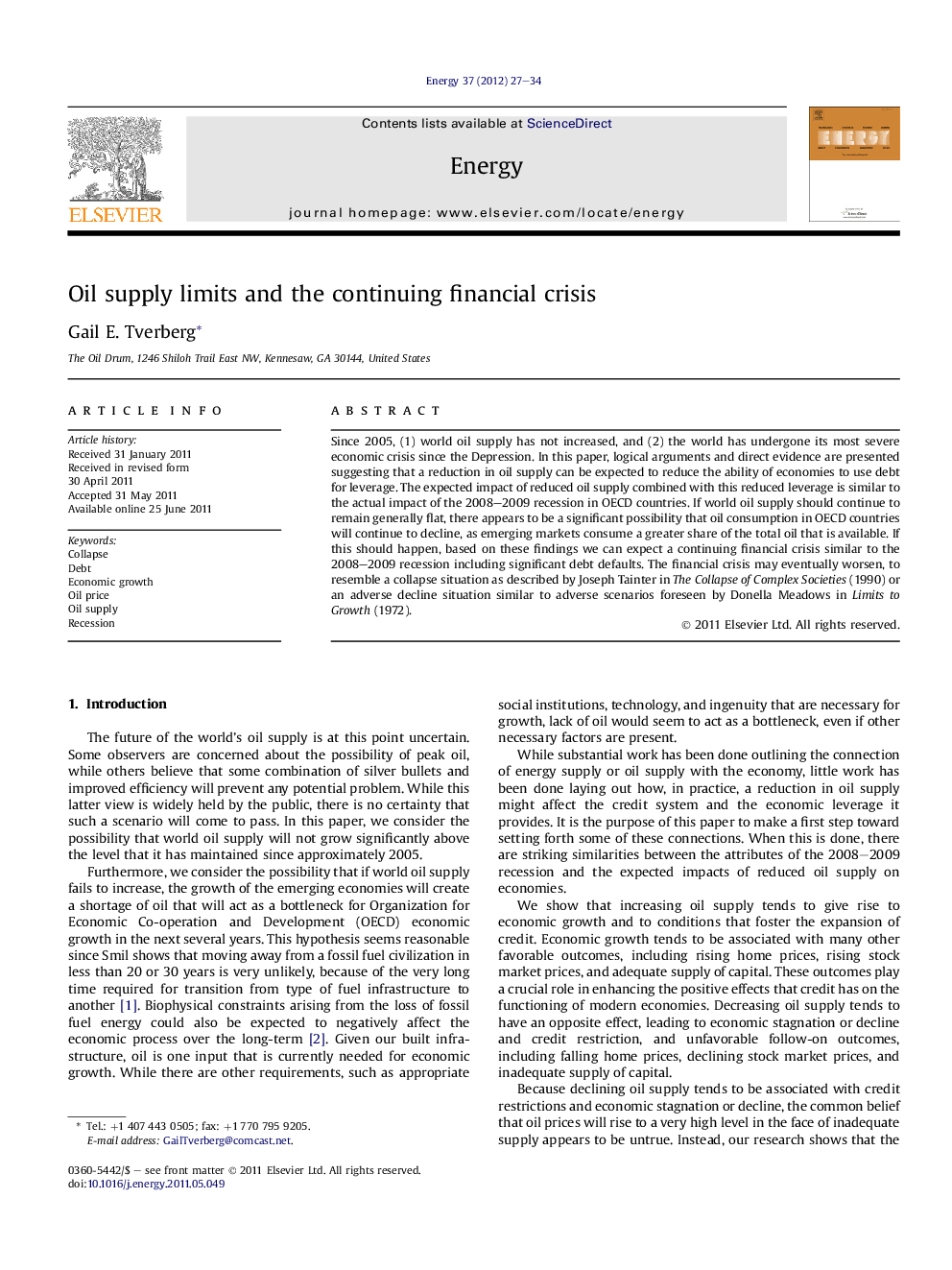| Article ID | Journal | Published Year | Pages | File Type |
|---|---|---|---|---|
| 1733905 | Energy | 2012 | 8 Pages |
Since 2005, (1) world oil supply has not increased, and (2) the world has undergone its most severe economic crisis since the Depression. In this paper, logical arguments and direct evidence are presented suggesting that a reduction in oil supply can be expected to reduce the ability of economies to use debt for leverage. The expected impact of reduced oil supply combined with this reduced leverage is similar to the actual impact of the 2008–2009 recession in OECD countries. If world oil supply should continue to remain generally flat, there appears to be a significant possibility that oil consumption in OECD countries will continue to decline, as emerging markets consume a greater share of the total oil that is available. If this should happen, based on these findings we can expect a continuing financial crisis similar to the 2008–2009 recession including significant debt defaults. The financial crisis may eventually worsen, to resemble a collapse situation as described by Joseph Tainter in The Collapse of Complex Societies (1990) or an adverse decline situation similar to adverse scenarios foreseen by Donella Meadows in Limits to Growth (1972).
► Reduced oil consumption leads to lower economic growth and less capacity for debt. ► Lower capacity for debt leads to debt defaults, reduced credit, falling home prices. ► Oil supply limits appear to be a primary cause of the 2008–09 recession. ► If world oil supply remains level, more recession can be expected in OECD countries. ► Inadequate demand for high-priced oil is likely to cause much oil to be left in place.
